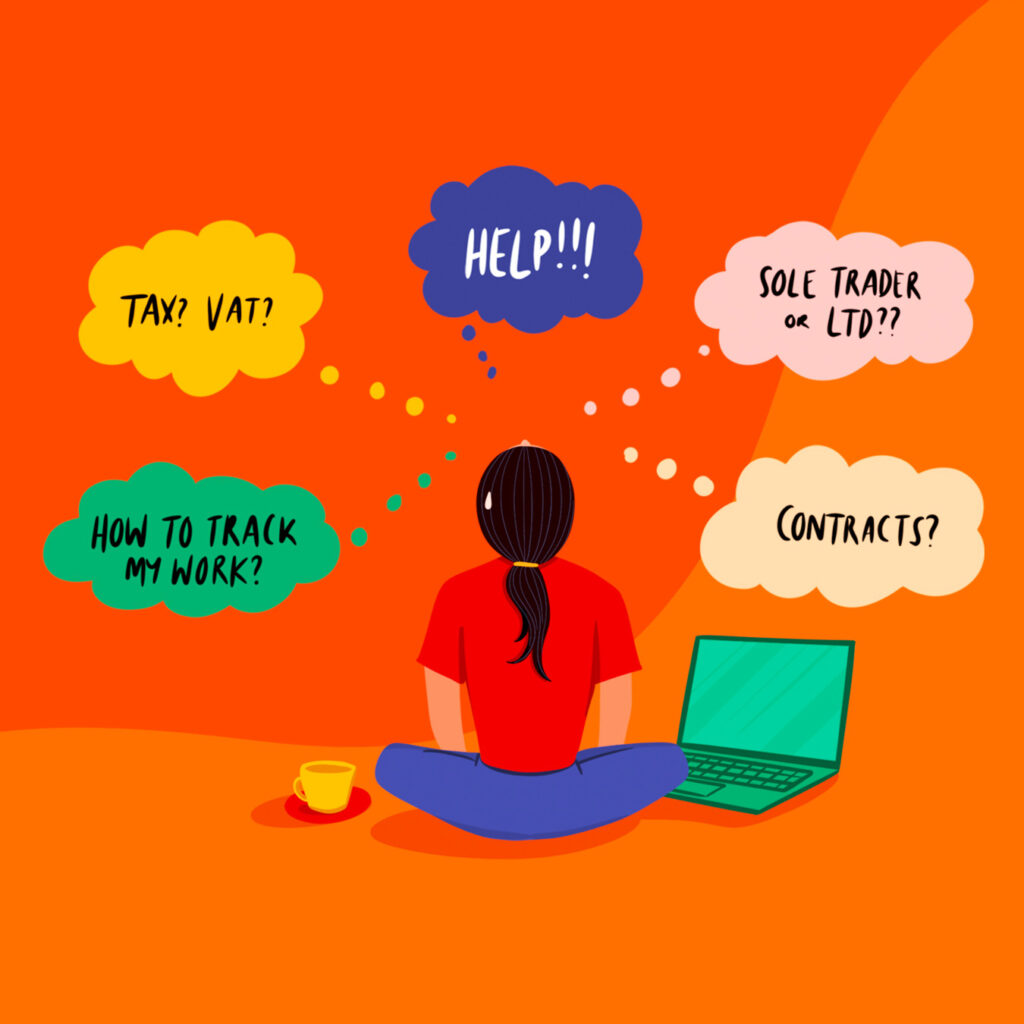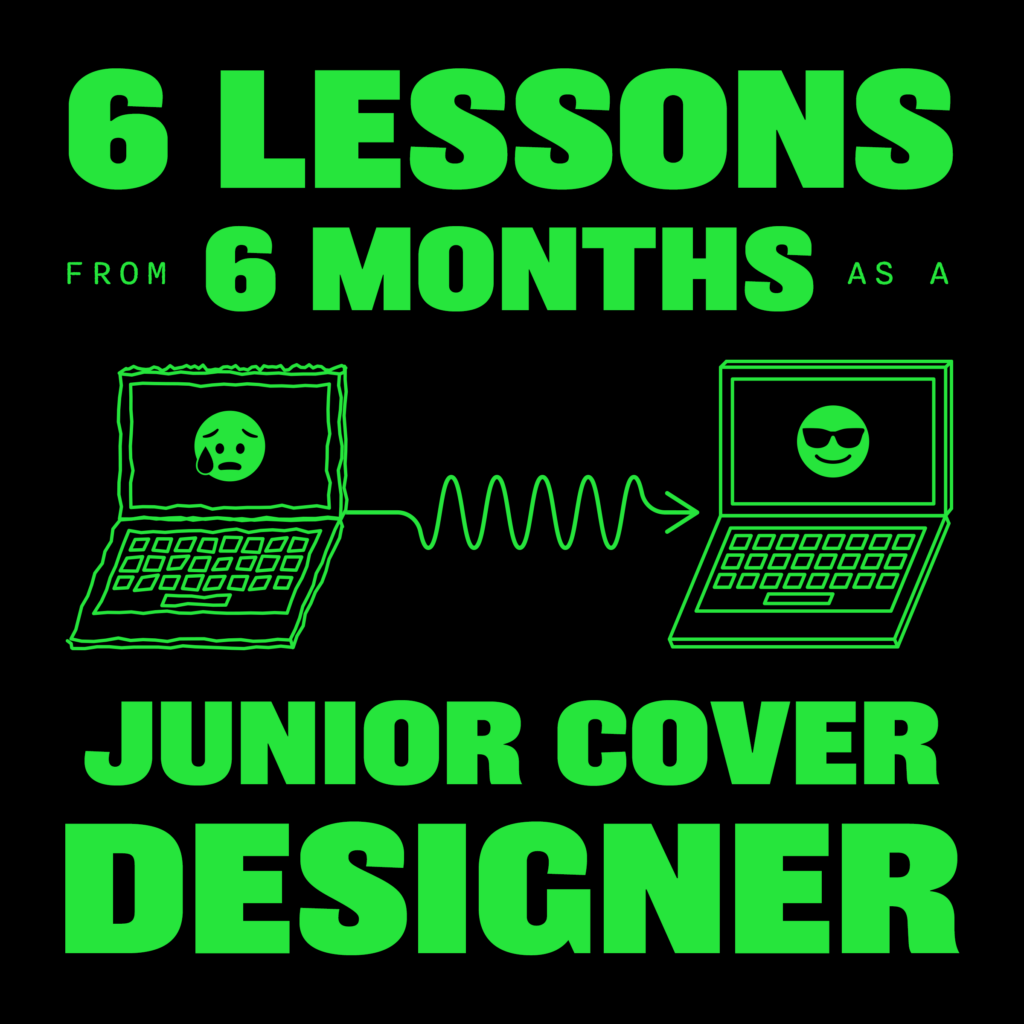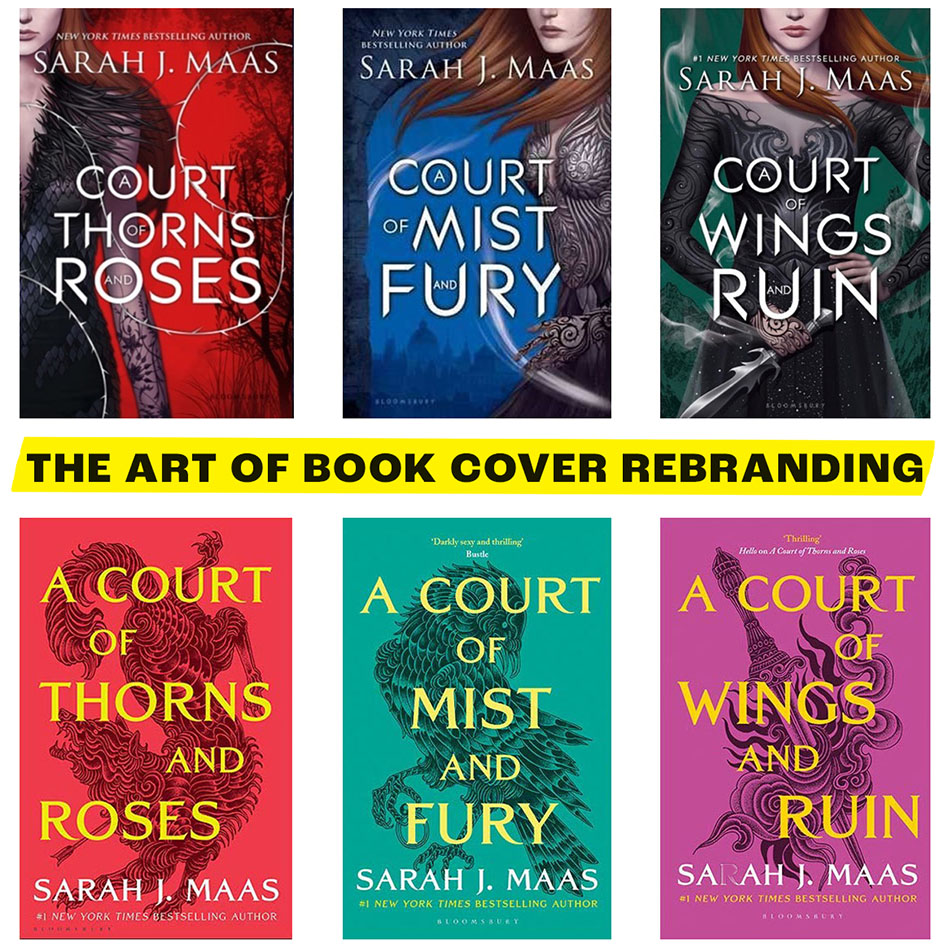With the recent SAG actor strikes coming to a close I thought it would be a relevant time to write an article discussing the ‘M’ word in publishing. Money. Having been in the UK publishing industry for over ten years now, and a freelancer for the last three and a half years, I am astounded at how little UK publishers have raised their wages and freelance prices to meet with inflation and the ever-growing cost of living without taking into consideration the current living crisis we are facing. To break it down: our gas and electricity bills are going through the roof, rent prices have shot up by almost 15% in just a year, and for many folks in London, nearly half their annual income is swallowed up by housing costs alone. That leaves only half to cover basics like food and transportation.
For decades now cover designs have played a pinnacle role in sales. I have had many people tell me on social media that they buy my cover designs solely for the design itself, almost as if it’s a collectible. Pre-orders have shown proof of this, as with special editions and the popularity of book boxes featuring exclusive covers. Marketing campaigns increasingly center around the concepts and aesthetics of a book’s cover design. Merchandise, including the forever loved tote bag (what’s not to love?!), feature cover illustrations, continues to flourish. The prominence of platforms like BookTok and Bookstagram means that an ever-growing number of people are engaging with cover designs and their designers within the context of books. Authors and editors have frequently mentioned that my cover designs have contributed to a notable boost in pre-sales, occasionally exceeding the results of their previous front-list titles.
This indisputable evidence underscores the vital role of cover design in a book’s success, prompting us to question why cover designers are often overlooked when it comes to praise and recognition.
In 2013, freelance book cover designers were receiving commissions between £650 to £750 per project. However, over the past decade, the industry has shown minimal adjustment for inflation, if any at all, with some large publishers still charging a similar fee. I often find myself even as an established designer in a constant struggle when negotiating with publishers, trying to secure a minimum rate of £1200 for a cover design project, for UK Commonwealth English rights alone (I will tackle world rights below). In contrast, publishers in the United States consistently offer significantly higher compensation, typically ranging from $3k to $4k USD for similar projects. That being said the US is facing its own battle with the living crisis, but with a higher freelance fee, it raises the question: Could the allure of these higher rates in the US for freelancers lead to a significant exodus of freelancers working for the UK market?
I entered the publishing industry on £21k a year, which at that time meant that in order to live in London I had to juggle full-time work with multiple side hustles in order to just survive in this city. That meant most of my weekends were filled with doing wedding photography with my sister to earn a bit of side cash, alongside selling illustration prints on Etsy, and any other odd jobs I could find. I also didn’t have any family aside from my sister in London, let alone the country, and there were times I couldn’t even afford my monthly train ticket to get to work. Without my side hustles, along with some help from my parents financially (to even buy groceries), I wouldn’t have survived to get to where I am today, and I know that this is a privilege in amongst itself.
So what’s driving the push among freelancers for increased budgets?
The landscape for freelancers in the publishing industry is experiencing some concerning trends. Notably, as a cover designer who illustrates most of my covers, the extra cover illustration fee is quietly disappearing, as well as paperback reusage fees. Larger publishers are increasingly incorporating World Rights clauses into agreements, all while maintaining the originally proposed cover design fee for UK Commonwealth English-only rights. These developments raise important questions about fair compensation and industry practices.
Why is this a major concern among freelancers?
Requesting World Rights or Open Market essentially means that as the illustrator and designer of a cover, I forfeit any potential resale fees in new or foreign markets. This means that a publisher can freely distribute my illustration and cover designs to any market they choose, and my compensation remains fixed at the initial sum they offered. Sell-on rights for foreign territories often constitute a crucial part of my income, and stripping that away without agreeing to a commensurate increase in compensation is not only disrespectful but also undermines the value of an artist’s work.
To put this into perspective. A lot of my bread and butter income can come from foreign rights sell-on fees. So if a publisher is offering only around £1K for a cover that they can then sell all over the world, profiting every time a new territory wants that cover, then should we not be discussing higher buyout fees? I think if contracts and rights teams want to push for world rights then they should be willing to pay £3k+ for those rights per project.
The issue at hand isn’t necessarily the inclusion of World Rights and a full buy-out in contracts. However, if UK publishers and their contract and rights teams are unwilling to offer reasonable compensation for a complete buyout of commissioned work, it raises important questions about the message being sent to freelancers within the publishing industry. Alternatively, if art teams don’t have the budget for the higher fee, then being willing to stick to the UK Commonwealth terms is always the best compromise, so that the freelancer still has the right to the sell-on fees. This situation also prompts us to consider the role of AI and its potential impact. If we’re concerned about the possibility of AI taking over jobs, it’s essential that we take proactive steps to ensure fair compensation for our artists. Failing to do so sends a disheartening message about the future of publishing. If publishers persist in undervaluing freelancers and their employees, it’s likely that the UK publishing sector will lose talented freelancers to foreign markets such as the US. Additionally, this may lead to skilled employees also seeking opportunities in other industries that better recognise their worth.
Other concerning points I have found in new contracts are clauses that strip freelancers of their ownership rights to unused sketches and covers. This essentially allows the publisher to retain copyright over sketches and covers that won’t even be included in the final product.
The recent employee strikes at HarperCollins US, which were advocating for fair wages, financial sustainability, and increased diversity and inclusion, should prompt us to reflect on our own industry here in the UK. When we discuss inclusivity and diversity in the context of the current pricing structures and contracts that often exploit freelancers, it becomes clear that many talented individuals may be discouraged from pursuing their careers. As I mentioned earlier, without the support of my side jobs and parents, I wouldn’t have been able to reach the point in my career where freelancing was an option. To truly embrace inclusivity and equitable treatment of publishing professionals, the industry must offer fair pay and establish pathways for individuals from diverse backgrounds to reach, hold, and thrive in decision-making roles as well as freelance. It’s time we open a candid dialogue to drive positive change for fair compensation within our industry.
So what can we do as both freelancers and publishers for a positive call to action?
Freelancers
- First and foremost empower yourself by understanding your rights as a designer and/or illustrator. This knowledge will bolster your position during fee and contract negotiations.
- Always meticulously review your contracts. Take notes to discern both the distinctions and commonalities among the contracts you receive.
- Don’t hesitate to request higher compensation or alterations to contract terms if you believe the initial offer or conditions are unjust. Most publishing professionals in the publishing world will be kind enough to accommodate a discussion.
- Be more vocal about fees and contracts with each other. Freelancing can often be an isolating experience, leaving you to advocate for yourself. By collaborating and discussing these matters, we can collectively push for more equitable contracts and compensation.
Publishers
- I urge publishers to be more open to hearing the legitimate concerns of freelancers who seek fairer compensation and equitable contract terms. Likewise, I extend my plea to Art Directors and in-house designers: carefully scrutinize the contracts you send out and evaluate whether you think they are fair.
- If the budget I mentioned above for a fair full buyout or World Rights is too high, then be willing to stick to UK Commonwealth rights, so that the freelancer can make up that income on sell-on fees.
- Maintain the practice of honoring timely payments to the artists you collaborate with. A significant portion of my work, and that of many other freelancers, is marred by the arduous task of chasing overdue payments.
- Continue to strive to keep illustration budgets and paperback re-usage fees separate from the initial cost.
- Tag and acknowledge cover artists and designers on cover reveals, and give where credit is due.
By addressing these concerns and ensuring timely payments, we can foster a more supportive and sustainable creative industry where artists can thrive. Let’s join forces to celebrate and uplift our artists and freelance professionals, working together to create an equitable space for everyone. I firmly believe that everyone in the publishing world is driven by their deep love for what this industry represents and aspires to achieve and with topics such as AI looms on the horizon, fair compensation for freelancers is not just a matter of money; it’s a statement of values and a commitment to human artistry, diversity and innovation.
A big thank you to those who helped give their time and input in helping me shape this article, your insights have been invaluable. This article was originally published on LinkedIn on October 10, 2023








